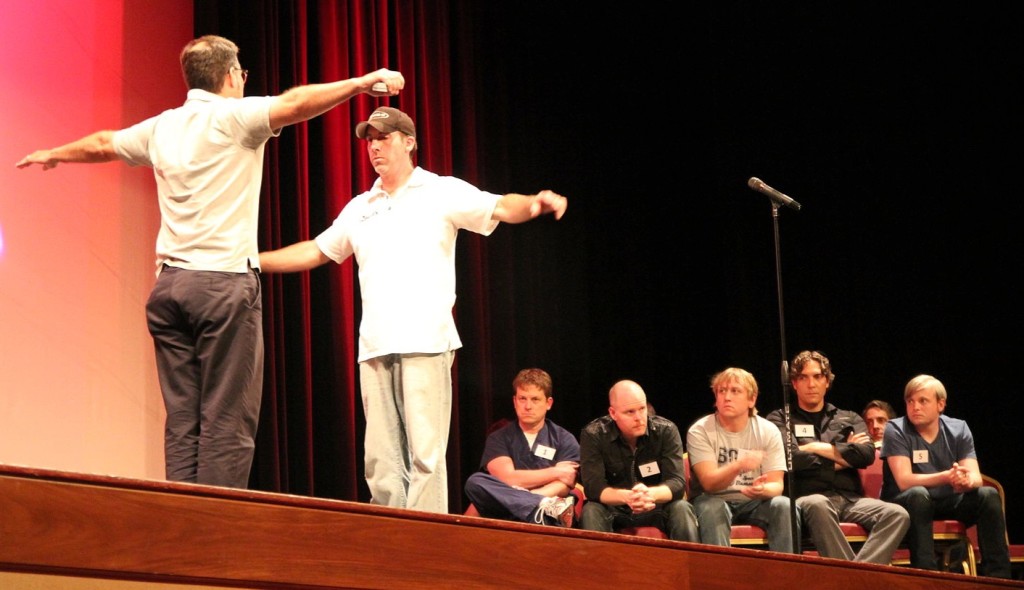 If indeed getting $1 Million is of interest to you, then you can claim it by simply demonstrating something paranormal or supernatural under controlled conditions.
If indeed getting $1 Million is of interest to you, then you can claim it by simply demonstrating something paranormal or supernatural under controlled conditions.
Easy right?
Oh wait, there is one ever so subtle flaw here, there is exactly zero evidence (so far) for the reality of anything paranormal or supernatural. Yes, yes, stories of ghosts abound and are popular, psychics claiming hits are also abundant, and so too will you find numerous assertions of various miracles by many different belief systems … and yet … under controlled conditions designed to eliminate the quite normal tendency we all have to fool ourselves, nothing ever manifests.
I’m not suggesting universal fraud – while there are indeed professional con-artists, there are also many individuals who are quite sure they have a ‘gift’, and so the idea of such a reality persists and is well and truly embedded.
The prize of $1 Million has been on offer for decades now, and many quite serious people have applied and been tested, then later departed quite disappointed that nothing happened. When asked for their thoughts on what went wrong, various suggestions are offered, and so we tend to find the the confidence in the reality of the claim is not in any way diminished by a failed test.
OK, time for a quick link: Here is the Wikipedia page that tells you all about the prize … and below are a few highlights gleaned from that page …
- Over a thousand people have applied to take the challenge, but none has yet been successful.
- In 2007 they narrowed the scope to only those with an already existing media profile and also the backing of a reputable academic. It was hoped that the resources freed up by not having to test obscure and possibly mentally ill claimants would then be used to challenge high-profile alleged psychics and mediums such as Sylvia Browne and John Edward with a campaign in the media.
- Then later in 2011 the JREF put in place new rules would give people without media or academic documentation a way to be considered for testing
So has anybody ever won?
Actually yes, in 2008, the prize was awarded by Randi to Seth Raphael after participating in a test of Raphael’s “psychic abilities”. The date of the award was 1st April and yes, Seth is a magician. While it may indeed had been an april Fools prank, it did also illustrate how easy it is to be fooled.
Is it really a fair test?
In one word … yes. I’ve been personally present at several preliminary tests.
The official Challenge rules stipulate that the participant must agree, in writing, to the conditions and criteria of their test, so before it starts there is an agreement on all the details.
- Claims that cannot be tested experimentally are not eligible for the Challenge.
- Claimants are able to influence all aspects of the testing procedure and participants during the initial negotiation phase of the challenge.
- Applications for any challenges that might cause serious injury or death will not be accepted.
In the picture below, James Underdown (back to camera) has his balance performance tested by the applicant during the preliminary phase of a challenge at TAM in Las Vegas. The applicants claim was that a wristband product could improve a person’s balance, so for this preliminary test, things proceeded as follows:
- a set of boxes were available, some had the product in them and some did not (nobody knew which was which)
- a group of randomly selected individuals were made available for the applicant to test (James, and some of the others seated behind the applicant in the photo were all part of that group)
- each in turn would have his or her balancing ability checked by the claimant, and then they would randomly pick one of the boxes and while holding the box (seen in pic below in right hand) would once again have his or her balancing ability checked.
- since the claim was that holding the product (in the box) would improve the ability to balance, the applicant should have been able to tell when the box contained the product and when it did not, so he would announce which it was.
- the box was then opened to see if he was correct.
Obviously statistical fluke leads to some right answers, so there was an agreed number of hits that needed to be reached for a success, and an agreed numbed of misses for a failure.
The test failed.
I’m in, I’d like to apply
Er .. well OK, the official website is here with all the details of how to apply and what the rules are … But be warned … Nobody has ever successfully passed a preliminary test.
And that rather stark warning is of course the real point here. We may indeed live in a world that is awash with supernatural and paranormal claims, but when honestly and openly tested in a scientific manner that completely eliminates all human bias … nothing has been found … ever.
So when faced with such claims, be skeptical.
